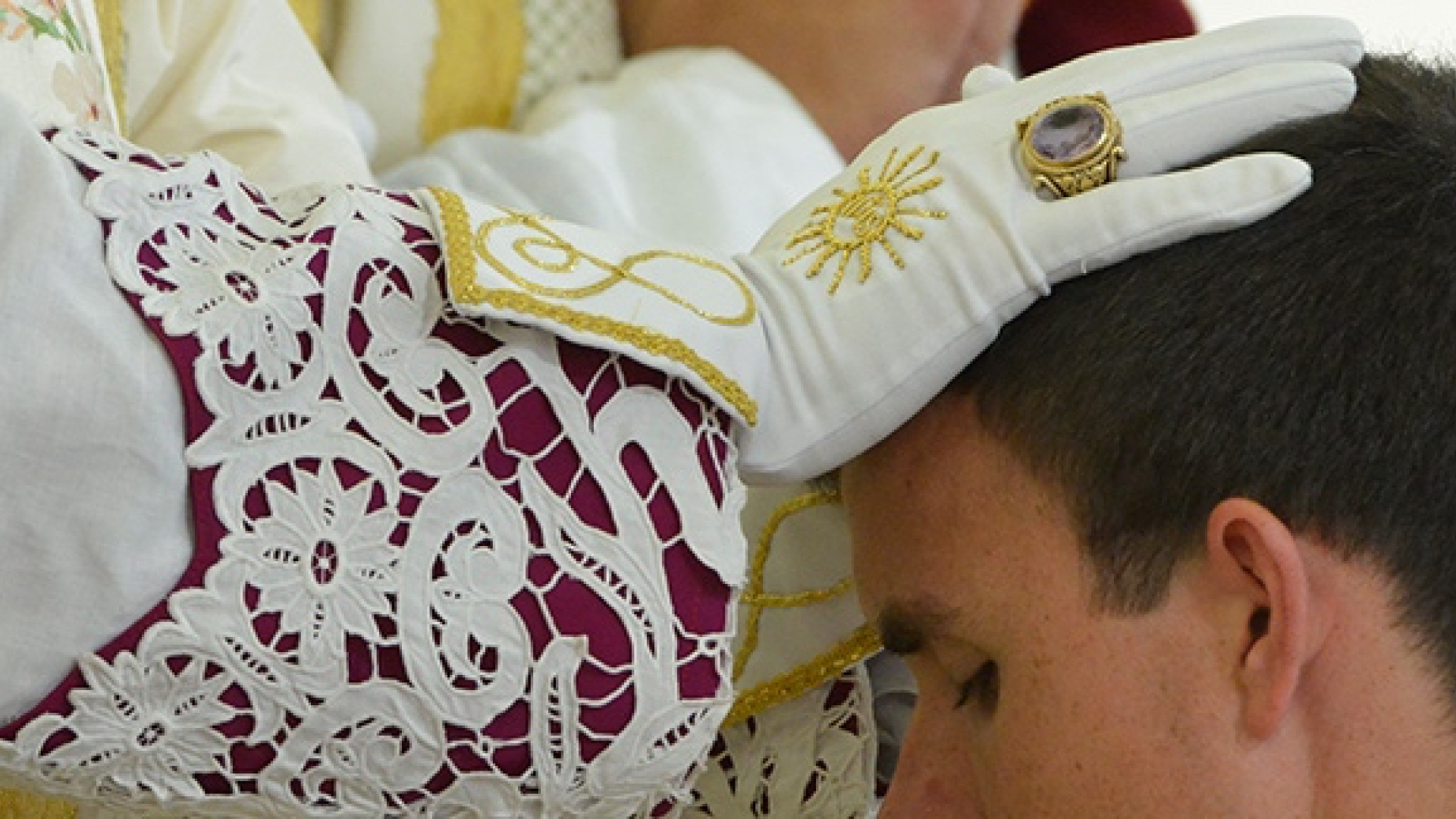An Instrument Used by God for the Salvation of Souls

Catholic priests serve primarily as mediators between God and man.
The two offices—the offices of saying Mass and forgiving sins—are the most exalted among the many powers and privileges God grants His priests. The faithful, therefore, for these and many other reasons, owe the greatest respect and devotion to God’s chosen ministers.
Offering the Mass, and thus renewing Christ’s sacrifice on the Cross, constitutes the priest’s chief dignity. While engaged in the sacred liturgy, the priest assumes the role of the Son of God, lovingly offering himself to the Father on behalf of all mankind. When the priest says the words of consecration, he reenacts Christ’s sacrifice on Calvary, himself separating the Lord’s precious blood from His holy body. The priest then literally takes hold of God and raises Him up high so that the people can adore their Savior.
The priest, in addition to being the specific instrument God uses to manifest Himself daily to the Church, also distributes divine grace when he gives Communion to the faithful. The people thus receive God directly from the hands of the priest.
The priest’s dignity, however, is not limited to the Mass alone; he also shares another divine prerogative when he pardons sin through the sacrament of Penance. Christ, when He told His apostles that whose sins they forgive are forgiven and whose sins they retain are retained, clearly willed that the normal means of returning to God’s good grace should be through priestly absolution. Thus, the ordinary way a soul passes from the death of sin to the life of grace is through the Catholic priesthood. Only souls in the state of grace can enter paradise; therefore, God has entrusted the very keys of Heaven to his priests.
Sermon by Archbishop Lefebvre, priestly ordinations 1976: Why do we need priests? (in French)